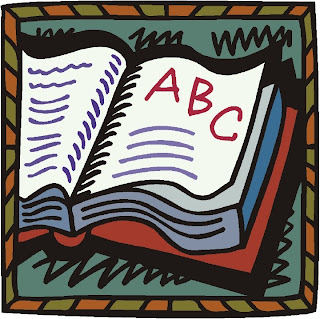
Literacy is an ability to identify, understand, interpret, create, communicate, compute and use printed and written materials associated with varying contexts. Literacy involves a continuum of learning in enabling individuals to achieve their goals, to develop their knowledge and potential, and to participate fully in their community and wider society.
(The United Nations Educational, Scientific and Cultural Organization, 2010)

Literacy has traditionally been descried as the ability to read for knowledge, write coherently and think critically about printed material.
(The United Nations Educational, Scientific and Cultural Organization, 2010)
Literacy is not a single body of knowledge but a varied set of social practice.(Luna, Solsken, & Kutz, 2000)
Literacy is vital to ensuring people has the best chance to succeed in their everyday life. Literacy allows us to make sense of a range of written, visual and spoken texts including books, newspapers, magazines, timetables, DVDs, television and radio programs, signs, maps, conversations and instructions.
(Department of education and training, 2009).















